Description
ABSTRACT
Precedent Unbound? An Appraisal of the Decision in Guaranty Trust Bank Plc V. Abiodun on Non-Compliance with the Oaths Act
Sixtus Iwuoha*
The principle of stare decisis is the bedrock of the Nigerian judicial system. There is a great value in certainty in law, but there is also of course, an expectation that the law as expounded by judges will be correct and certainly not knowingly incorrect, which would result when a decision felt to be wrong is not overruled. The tensions when these basic principles are in conflict can be profound. The values underlying the principle of stare decisis are well known – consistency, certainty, predictability and sound judicial administration. Adherence to precedent promotes these values. People should be able to know the law so that they can conduct themselves in accordance with it. In recent times, trial and appellate courts have witnessed a barrage of objections and/or appeals premised on non-compliance with Section 13 of the Oaths Act and the form set out in the First Schedule to the Act. The usual suspects – affidavits, witness statements on oath and additional statements on oath have been at the receiving end of these unrelenting attacks by counsel. This article appraises the decision of the Court of Appeal in Guaranty Trust Bank Plc v Abiodun and its subsequent treatment by the lower courts and even the Court of Appeal under the doctrine of stare decisis.
Keywords: Affidavit, Evidence, Statement on Oath, Litigation.
INTRODUCTION
In civil proceedings, not all statements of facts may be taken at face value. A variety of circumstances exist in which it is appropriate to take some additional step to ensure the honesty and accuracy of statements made in pleadings. The most familiar way of ensuring the veracity of a statement is to require that the statement be made under oath, usually before a commissioner for oaths, a notary public or other persons authorized to administer oath.
The oath may be seen as operating at two levels. First, it is normally attended by elements of solemnity and ceremony. This is thought to impress upon the person taking the oath that the occasion is one of importance involving a special duty to tell the truth. A statement made in a context of solemnity and ceremony is less likely to be made thoughtlessly or carelessly. Furthermore, where an oath truly binds the conscience of the person making the statement, the religious or moral implications of violating the oath makes it less likely that the person will tell an untruth. Even the individual who is unmoved by the religious or moral consequences of violating an oath will likely be deterred by the legal consequences it may attract. In most cases, giving a misinformation under oath constitutes an offence under the Criminal Code Act. Depending on the circumstances, it may constitute perjury which can lead to imprisonment for up to 14 years.1
* LL.B, BL. The author is currently a graduate student at Osgoode Hall Law School, Toronto, Canada. Prior to his graduate studies, he was an Associate in the Litigation, Arbitration and ADR Practice Group of Banwo & Ighodalo, a first-rate commercial law firm in Nigeria. The author would like to thank Onyinyechi Iwuoha for her review and helpful comments on the initial draft. 103
- The Criminal Code Act, Cap 77 Laws of the Federation of Nigeria 1990, s 118.

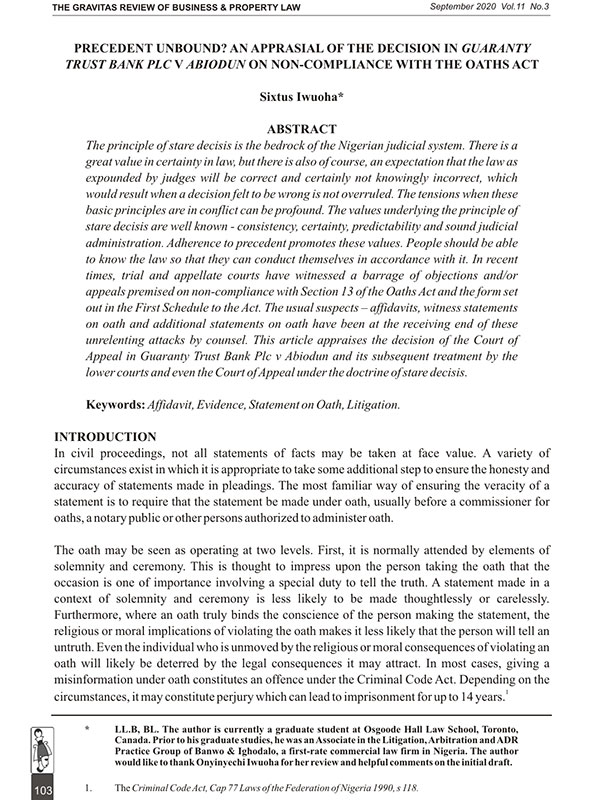
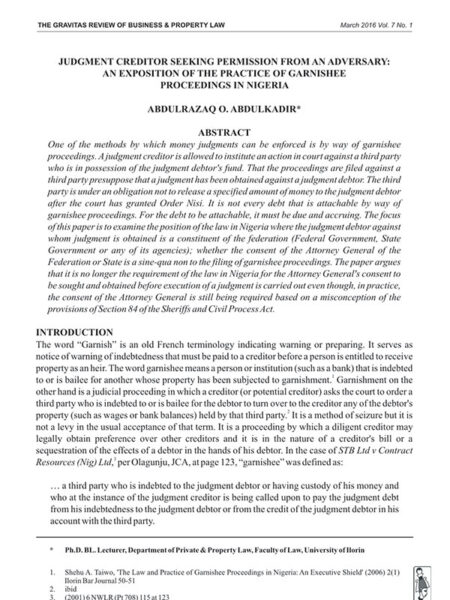
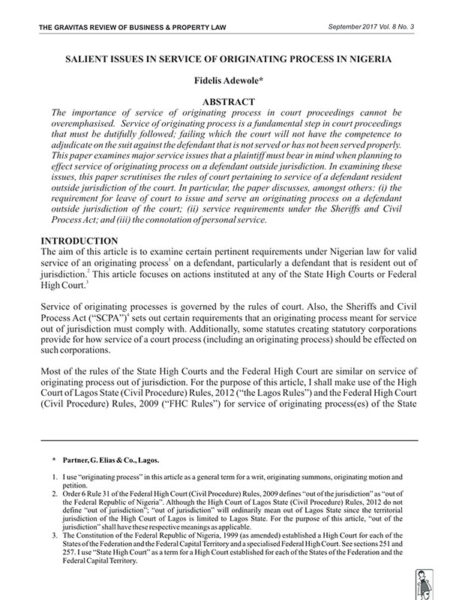
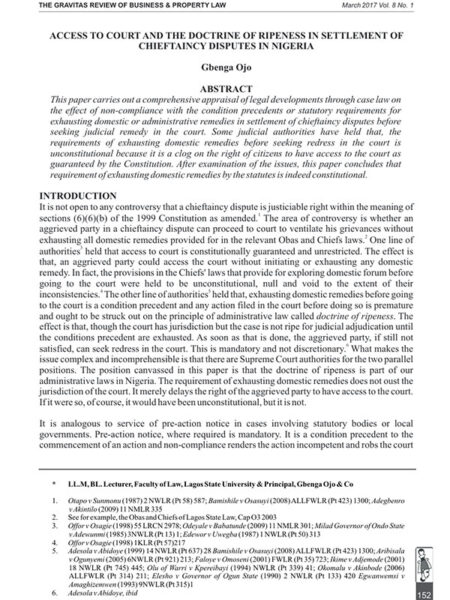
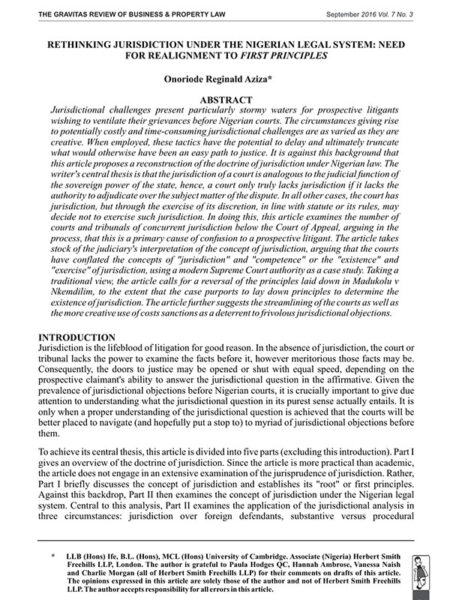


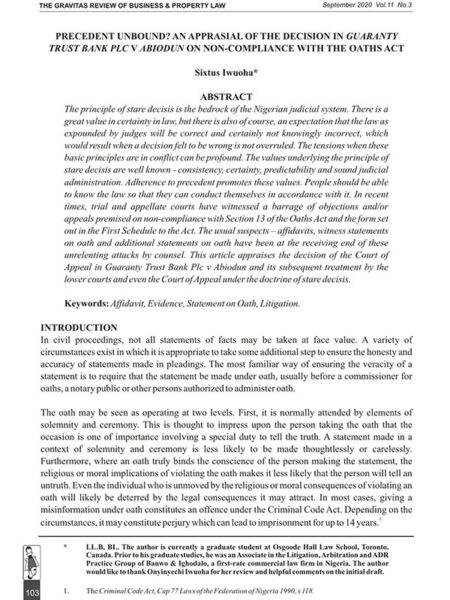
Reviews
There are no reviews yet.